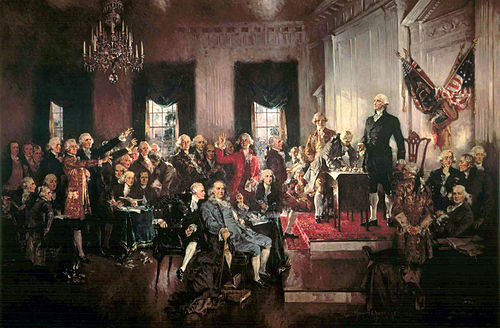 Culture & Ethics
Culture & Ethics
 Evolution
Evolution
The Idea of Man Under Materialism

Of all the lies that are told about advocates of intelligent design, the one that has had the most success in diverting the debate on life’s origins holds that ID is simply about contesting the age of the earth in favor of Scriptural literalism. See, for example, Kevin D. Williamson’s grossly ill-informed, not to mention bigoted, diatribe at National Review Online the other day.
Not only is ID not about that, it actually is about issues that are far more profound — and relevant to NRO‘s readers, you would think.
Like what issues? Well, Discovery Institute’s Stephen Meyer had a rich and fruitful discussion with Michael Medved on the radio yesterday. The topic under examination was the picture of a human being assumed by our country’s system of limited, Constitutional government — and the very different, indeed profoundly alien picture of a human being under materialist assumptions.
I thought it would be helpful to list briefly the key points as Meyer conveyed them. The Constitution assumes:
- Free will, hence the capacity for self-governance.
- Moral responsibility hence accountability under the law.
- Intrinsic dignity of the human being, hence inalienable human rights.
- Unchanging moral principles and a stable human nature, making possible a stable system of Constitutional law.
In contrast, under the materialistic picture of reality pervasive in our culture, you get this:
- Not free will, but determinism.
- Since moral ideas evolve and are instinctive rather than a matter of choice, moral responsibility and accountability are undermined.
- No conception of a design or purpose behind life, therefore the erosion of the concepts of human dignity and inalienable rights.
- Since human nature evolves and moral law evolves, the supreme law governing our political system is also infinitely malleable.
The clash of these conceptions of man and morality raises the question of whether the American system can survive the triumphant dissemination of Darwinian materialism — that is, if the way of thinking about human nature that gave rise to that system in the first place has been widely rejected.

